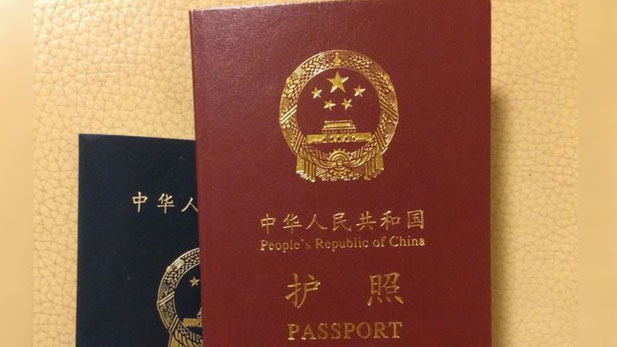Tibetan passports still held by Chinese authorities despite promises of return
| Publisher | Radio Free Asia |
| Publication Date | 19 September 2017 |
| Cite as | Radio Free Asia, Tibetan passports still held by Chinese authorities despite promises of return, 19 September 2017, available at: https://www.refworld.org/docid/5a94277b4.html [accessed 4 November 2019] |
| Disclaimer | This is not a UNHCR publication. UNHCR is not responsible for, nor does it necessarily endorse, its content. Any views expressed are solely those of the author or publisher and do not necessarily reflect those of UNHCR, the United Nations or its Member States. |
2017-09-19
 Chinese passports are shown in a file photo. RFA
Chinese passports are shown in a file photo. RFA
Tibetan passports seized by authorities earlier this year in a bid to tighten control over travel outside China are still being held in spite of police promises that they would be quickly returned, Tibetan sources say.
The move affected hundreds of Tibetans traveling as pilgrims to India and Nepal and as tourists to other Asian countries, and came amid official concerns over Tibetans' presence at a politically sensitive religious gathering led by exiled spiritual leader the Dalai Lama in January.
"The rule was applied strictly to Tibetans who tried to attend the Dalai Lama's Kalachakra teachings in Bodhgaya, India," a Tibetan source in China told RFA's Tibetan Service, speaking on condition of anonymity.
"Many of them were forced to return before the teachings started, and their passports were confiscated by authorities at airports in China," RFA's source said. "They have still not been given their passports back, even though they were told this would happen by March."
"The Tibetans believe that they were deliberately tricked," he said.
Families threatened
Kalachakra, which means Wheel of Time, is a ritual that prepares devotees to be reborn in Shambhala, a celestial kingdom which, it is said, will vanquish the forces of evil in a future cosmic battle..
The ceremony and teachings are often conducted outside Tibet by the Dalai Lama, who is widely reviled by Chinese leaders as a "splittist" seeking to separate Tibet, which was invaded by Communist China in 1950, from Beijing's control.
Many of the Tibetans ordered home by China were told their families would be harmed if they failed to go back, sources told RFA in earlier reports.
And while the old passports, purchased at a cost of 5,000 yuan (U.S. $759) each and good for 10 years, have not been returned, no new passports are being issued, RFA's source said.
"These discriminatory actions are confined not just to Tibetans but also affect members of the Uyghur nationality group," the source said, adding that China's constitution guarantees protection against discrimination based on ethnicity.
Turned away by hotel
A Tibetan traveling to Beijing this week was meanwhile refused a room at a hotel after showing identification, and was taken by police to a special facility set up to accommodate Tibetans under supervision as the city prepares for a major Communist Party Congress this month.
"The police questioned me about my reasons for visiting Beijing and how long I was planning to stay," the man told RFA's Tibetan Service.
"They said I would need to report to them again before leaving," he said.
"Earlier, I had heard that a Uyghur was harassed at the Beijing airport because he belonged to an ethnic minority group, and now I have experienced the same unfair treatment at the hands of the Chinese police," he said.
Reported by Kunsang Tenzin for RFA's Tibetan Service. Translated by Karma Dorjee and Dorjee Damdul. Written in English by Richard Finney.
Link to original story on RFA website
